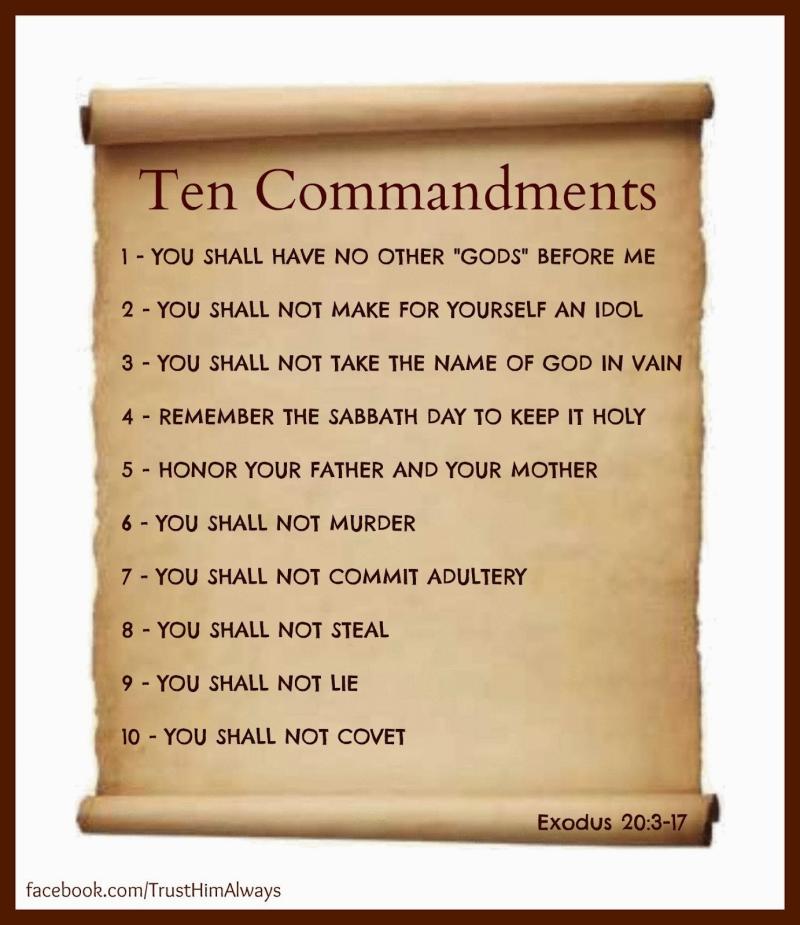What does the Bible say about sixth commandment?
The Sixth Commandment, as given in the Bible, is found in the Book of Exodus and is one of the Ten Commandments. The exact wording may vary slightly depending on the translation, but the essence remains consistent. The Sixth Commandment is a prohibition against murder. Here are scriptural references for the Sixth Commandment:
Exodus 20:13 (New International Version):
"You shall not murder."
This is the direct and concise statement of the Sixth Commandment as recorded in the Book of Exodus.
Matthew 5:21-22 (New Testament, Jesus' Teaching):
"You have heard that it was said to the people long ago, 'You shall not murder, and anyone who murders will be subject to judgment.' But I tell you that anyone who is angry with a brother or sister will be subject to judgment. Again, anyone who says to a brother or sister, 'Raca,' is answerable to the court. And anyone who says, 'You fool!' will be in danger of the fire of hell."
In the Gospel of Matthew, Jesus expands the understanding of the Sixth Commandment beyond the physical act of murder. He emphasizes the importance of controlling one's anger and avoiding harmful words.
Romans 13:9-10 (New Testament, Paul's Teaching):
"The commandments, 'You shall not commit adultery,' 'You shall not murder,' 'You shall not steal,' 'You shall not covet,' and whatever other command there may be, are summed up in this one command: 'Love your neighbor as yourself.' Love does no harm to a neighbor. Therefore love is the fulfillment of the law."
The Apostle Paul, in his letter to the Romans, emphasizes the connection between the commandments, including the prohibition against murder, and the overarching principle of love for one's neighbor.
These references highlight the moral and ethical principles associated with the Sixth Commandment, emphasizing not only the prohibition against taking another person's life but also promoting a broader sense of love, respect, and non-harmful behavior towards others.
What biblical references discuss the implications of the sixth commandment?
The sixth commandment, "Thou shalt not kill" (Exodus 20:13), is a foundational principle of morality in the Bible. Several biblical references discuss its implications and broader applications:
1. Respect for life:
- Genesis 9:5-6: God holds humans accountable for taking innocent life, emphasizing the sanctity of human life.
- Exodus 21:12-14: Laws are established for unintentional and intentional killings, differentiating between manslaughter and murder.
- Numbers 35: Cities of refuge are designated for unintentional killers, offering protection and a fair trial.
2. Beyond physical killing:
- Matthew 5:21-22: Jesus expands the commandment to include anger and hatred, condemning not only the act of killing but also the underlying intentions.
- James 3:15-16: Envy and jealousy are described as forms of spiritual murder, highlighting the importance of inner peace and forgiveness.
- 1 John 3:15: Anyone who hates their brother is considered a murderer, emphasizing the connection between love and the preservation of life.
3. War and violence:
- Deuteronomy 20: While acknowledging the reality of war, laws are set to minimize unnecessary bloodshed and protect innocent civilians.
- Romans 12:19: Christians are instructed to leave vengeance to God and not take revenge on their own, promoting non-violence and reconciliation.
- Matthew 26:52: Jesus instructs Peter to put away his sword, emphasizing the rejection of violence as a means of resolving conflict.
4. Responsibility for the vulnerable:
- Exodus 22:22-23: Vulnerable groups like widows and orphans are given special protection under the law, ensuring their safety and well-being.
- Proverbs 31:8-9: Speaking on behalf of the voiceless and defending the rights of the oppressed are acts of upholding the commandment.
- James 2:14-17: Faith without action is incomplete. Helping those in need, especially those facing danger or death, is a tangible expression of the commandment.
These are just a few examples, and the implications of the sixth commandment continue to be explored and debated by theologians and ethicists. However, the core message remains clear: human life is precious and should be protected, both physically and spiritually. By understanding its broader meaning and application, we can strive for a world where respect for life and the pursuit of peace prevail.













